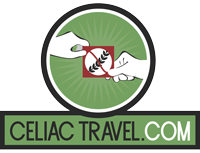Food supplements & vitamins I take to help my food allergies and celiac disease
As you’ll know if you’ve read my food allergy page, I’m a celiac who suffers from food allergies (or at least I did until I used this food allergy test).
As you probably know by now, I’m not a doctor, simply someone who has had great results by following a structured approach to food allergy, which includes taking a range of supplements, vitamins and minerals. I’ll detail these below and what their function is so you can investigate them for yourself.
Supplements, vitamins & minerals for food allergy
| Supplement / Vitamin | Function | My Dosage |
| Glutamine powders | Glutamine is an amino acid strongly implicated in gut repair, so I take it to help my damaged celiac gut heal itself. | I took 5g of powder every day in the morning before breakfast for the first 3 months. Now I take it for about a week any time I got glutened. |
| Friendly gut bacteria | ‘Leaky gut syndrome’ which is one explanation for developing food allergies with coeliac disease may be helped by friendly gut flora. Also, the inflammation caused by coeliac disease and allergies doesn’t provide a perfect environment for your nice tummy bugs. | At first I took one before every meal, but now just one tablet first thing in the morning. It’s important to get a good tablet with special food for the bugs to help them through the acidic stomach stage of digestion. |
| Betaine hydrochloride | To help the second stage of digestion in the stomach (the first is chewing), you need lots of enzymes and a good acidic environment. | One before each main meal. |
| Digestive enzymes | There are lots of enzymes needed to break down various foods in your stomach, and a supplement can help if your digestion is iffy.They’re not without risk though as they may digest the wrong things, like your gut lining. | One before each main meal. |
| Caprylic Acid | Caprylic acid can help gut healing, so it seems. | I take one tablet per day. |
| Multivitamin | As I mentioned in my food allergy treatment and cure page, a damaged gut is unlikely to be absorbing nutrients properly, so a good multivitamin I thought was a good idea. | I take 2 per day, one in the morning, one in the evening. The multivitamin I take is designed to be taken in this way |
| Calcium and Vitamin D | As a coeliac I have osteopoenia (thinned bone) so calcium and vitamin D are to help that. There is conflicting evidence whether calcium has much effect on osteopoenia or osteoporosis, but until something better comes along, I’m taking it.{Note: 5 years on I’ve stopped taking a calcium supplement as it appears that they can contribute to arterial calcification (and you don’t want any of that). I now focus on magnesium and vitamin D status and lifting heavy weights to strengthen my bones). | 250 mg calcium 3 times daily |
| Zinc | Zinc is important for gut healing too, and the multivit I take doesn’t contain enough, so I supplement an extra 20g per day. | 20g once per day. |
| Quercetin | Quercetin is a bioflavinoid found in large amounts in strawberries. It inhibits the release of histamine so if you’re having allergic reactions it may help reduce their severity. | 500mg per day |
| Vitamin C | Good for all sorts of things, including reducing the amount of histamine in your bloodstream, a by-product of the allergic response. | 2000 mg a day, half in the morning half at night |
Note: 5 years on and I am less keen on supplements. I get in-depth blood tests done every 6 months and supplement to correct any deficiences. Other than that, I rely on a nutrient-dense, food-toxin clean diet. I now know that nature’s only superfood is liver. 🙂
